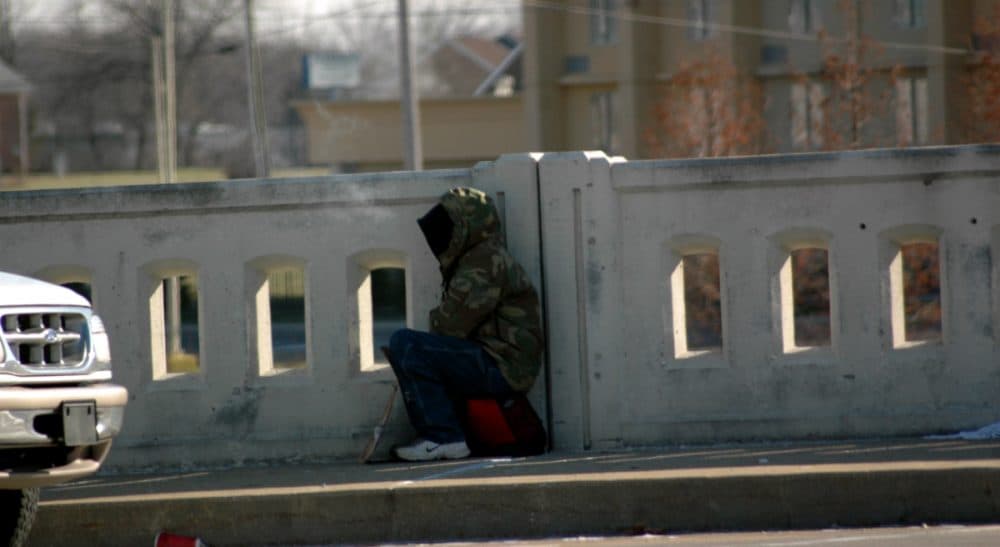Advertisement
Luck And The 'Self-Made' Man: Of Politicians And Panhandlers

Recently, as I was approaching the Cambridge entrance to Route 2 in the early afternoon, the panhandler patrolling the median was an old man with shockingly white hair. Bent and gnarly as an apple tree, he darted from one car to the next, an upside-down baseball cap in his outstretched hand. I was shaken by his obvious age and infirmity. The regulars in this spot are in their 20s or 30s or maybe 40s, looking ropy and strong. They carry handwritten signs identifying themselves as homeless, laid-off vets or parents with young kids to feed. I tend to believe them, though I’ve been told countless times that they’re actually employees of contemporary Fagans who equip them with signs and cigarettes, deploy them, and in return pocket a third of the take.
I always keep a dollar under my dashboard for panhandlers. The amount is both paltry and arbitrary, but I’ve found that, right or wrong (and probably wrong), this routine spares me from the internal debate I’d otherwise succumb to. You know the one. Why only a dollar? Why not skip that latte and give out five dollars every day? versus You’re not going to change anyone’s life with a dollar, so why give anything at all?
After handing it out and smiling in response to the standard “God bless you,” I don’t replenish the kitty until the start of my next journey. In this way, I generally save myself the Why her? Why not him? or the If I give to one person, don’t I have to give to all of them? Nope, it’s first come, first served.
One is more lucky than worthy, the other probably more unlucky than unworthy.
But last week, I found myself hoping that the old man would make it to my car before the light changed. He had no sign, no obvious story or charm. He may have been a wife beater or child molester for all I knew, but my God, I thought, he is just too old for this line of work. I could have lowered my window and stuck my arm out, made it obvious that there was a dollar flapping in the wind, just for him. But I was afraid that he’d break into a painful trot at the sight of it, like a hungry animal. I didn’t want to be responsible for that sort of degradation. So instead I passively sat there counting the cars and measuring his pace.
Though not mathematically inclined, I began to wonder about the contribution rate. How many cars did he need to approach on average for each individual donation? If he were one-tenth faster, would he make it to me before the light changed? If the line of cars moved one-tenth slower, might he have lingered long enough next to the Lexus in front of me to yield what might even have been a more generous donation? The number and size of the vehicles, the flow of the traffic, the speed with which he could propel himself on those obviously aching legs — there were so many variables affecting the amount of his take, the length of time he’d have to spend under darkening skies, his hand mutely outstretched.
Donald Trump’s hand was also extended almost a year ago, when from his perch in Trump Tower, he held up a financial statement documenting his $9.2 billion in assets. “I’m proud of my net worth. I really am,” he said as he announced his 2016 candidacy for the Republican nomination. He argued that the mere fact of his wealth qualified him to be president, and clearly many of his fans agree. But he was born into wealth, raised to assume the leadership of an empire his father had built.
Trump is the mirror image of the hustling panhandler at the entrance to Route 2. One wears a red tie and a white shirt, the other a stained hoodie and drooping khakis. One is more lucky than worthy, the other probably more unlucky than unworthy. Probabilities and random chance determined the hobbled old beggar’s fortune for the day. And as with his boastful counterpart, there is no reason to believe that they played a lesser role in the trajectory of his life.
